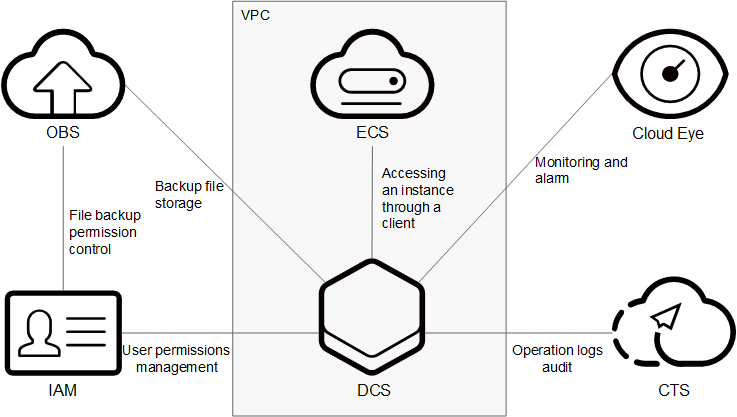- User Guide
- Service Overview
- Related Services
Related Services¶
DCS is used together with other services, including VPC, ECS, IAM, Cloud Eye, CTS, and Object Storage Service (OBS).

Figure 1 Relationships between DCS and other services¶
VPC¶
A VPC is an isolated virtual network environment on the cloud. You can configure IP address ranges, subnets, and security groups in a VPC.
DCS runs in VPCs. The VPC service manages EIPs and bandwidth, and provides security groups. You can configure access rules for security groups to secure the access to DCS.
ECS¶
An ECS is a cloud server that provides scalable, on-demand computing resources for secure, flexible, and efficient applications.
You can access and manage your DCS instances using an ECS.
IAM¶
IAM provides identity authentication, permissions management, and access control.
With IAM, you can control access to DCS.
Cloud Eye¶
Cloud Eye is a secure, scalable, and integrated monitoring service. With Cloud Eye, you can monitor your DCS service and configure alarm rules and notifications.
Cloud Trace Service (CTS)¶
CTS provides you with a history of operations performed on cloud service resources. With CTS, you can query, audit, and backtrack operations. The traces include the operation requests sent using the management console or open APIs and the results of these requests.
OBS¶
OBS provides secure, cost-effective storage service using objects as storage units. With OBS, you can store and manage the lifecycle of massive amounts of data.
You can store DCS instance backup files in OBS.